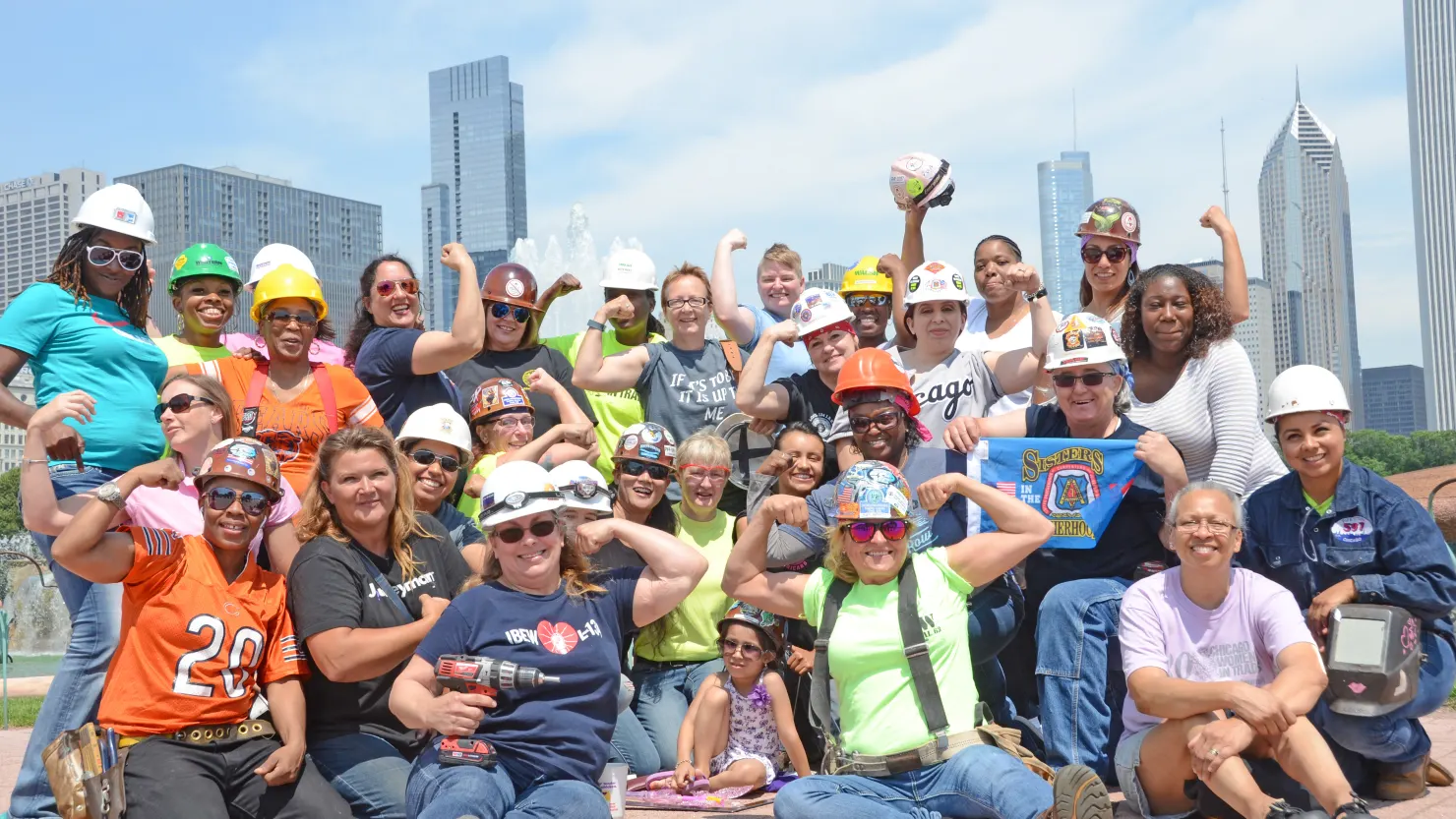March 28 – Women working in skilled trades such as construction, welding, and carpentry are preparing for a difficult road ahead as the Trump administration pushes to repeal diversity, equity, and inclusion (DEI) policies across various industries. These executive orders, aimed at eliminating what the administration has termed “illegal DEI practices,” have raised serious concerns among tradeswomen and advocacy groups, who fear the rollback could worsen workplace conditions and limit opportunities for women in male-dominated fields.
Low Female Representation in Skilled Trades
The skilled trades, which include occupations such as construction laborers, electricians, welders, and carpenters, have historically been among the most male-dominated industries in the United States. According to a 2023 report by the Institute for Women’s Policy Research (IWPR), which analyzed data from the U.S. Bureau of Labor and Statistics, women made up only 4.3% of workers in construction and extraction occupations.
Despite the low representation of women in these fields, skilled trades offer high salaries and competitive benefits, making them attractive career paths, particularly for those without college degrees. However, the lack of diversity in the workforce has resulted in persistent challenges, including discrimination, harassment, and limited advancement opportunities for women.
Harassment and Discrimination Persist in Male-Dominated Fields
Women who have spent decades working in the skilled trades have reported widespread incidents of harassment and discrimination. Kina McAfee, a veteran tradeswoman with 40 years of experience in the industry, described the challenges faced by women on job sites. “Harassment is common, and on smaller worksites, it’s not unusual for a woman to be the only female worker,” McAfee said.
The lack of representation often isolates women in these environments, making it harder for them to report misconduct or seek support. Many tradeswomen have spoken out about facing derogatory comments, exclusion from professional opportunities, and being passed over for promotions despite their qualifications and experience.
Impact of DEI Rollbacks on Tradeswomen
The Trump administration’s push to dismantle DEI initiatives threatens to undo progress made in recent years to create more inclusive and supportive work environments for women and minority groups. These policies, which aim to promote diversity and ensure equal opportunities, have been instrumental in opening doors for women in the skilled trades.
With the rollback of these protections, advocates worry that the existing challenges faced by tradeswomen will worsen, further discouraging women from entering or staying in these high-paying fields. “Diversity is not illegal,” said a spokesperson for a tradeswomen’s advocacy group in Chicago. “We’ve fought hard for the progress we’ve made, and these executive orders threaten to take us backward.”
Legal Challenges and Advocacy Efforts
Nonprofits and advocacy organizations across the country are mobilizing to challenge the administration’s actions in court. Groups that support tradeswomen have joined forces with civil rights organizations to fight against what they see as an attack on workplace diversity and equality.
A leading advocacy group in Chicago, which has worked for years to increase representation and improve conditions for women in the trades, is among those taking legal action. “We will not stand by while the gains we’ve fought for are rolled back,” said the group’s director. “We are prepared to challenge these policies in court and ensure that all workers, regardless of gender or background, have an equal opportunity to thrive.”
The Importance of DEI in Skilled Trades
DEI policies have played a critical role in encouraging women to pursue careers in skilled trades by fostering inclusive environments and reducing barriers to entry. These initiatives have also helped establish mentorship programs, training opportunities, and support networks for women in traditionally male-dominated industries.
Without these protections, experts warn that the progress made in diversifying the skilled trades workforce could be reversed. “DEI policies are not just about fairness — they’re about ensuring that talented individuals, regardless of gender or background, have the opportunity to succeed,” said a labor policy expert. “Rolling back these protections will only deepen the existing disparities and make it harder for women to break into and advance in these fields.”
Concerns About Future Workforce Diversity
As the skilled trades industry continues to grapple with a shortage of skilled workers, industry leaders recognize the need for a diverse workforce to meet growing demand. Encouraging women and underrepresented groups to enter these fields is essential for closing the skills gap and ensuring the future of the workforce.
However, the rollback of DEI policies threatens to undermine these efforts, potentially discouraging women from considering careers in the trades and exacerbating the existing labor shortage. “We need more people in these industries, and excluding half the population from meaningful opportunities is not a sustainable path forward,” said an industry advocate.
Looking Ahead: Uncertainty and Resilience
As the legal battles over DEI rollbacks unfold, tradeswomen and their advocates remain committed to protecting the progress that has been made and continuing to push for greater inclusivity in the workplace. While the future remains uncertain, the resilience of women in skilled trades is evident in their determination to fight for equal opportunities and fair treatment.
“We’ve come too far to go back now,” said McAfee. “Women in the trades have proven time and again that we belong here. We won’t let these rollbacks undo the hard work we’ve put in to create a more inclusive and equitable industry.”
As the Trump administration’s executive orders face mounting legal challenges, the outcome of these efforts will determine whether the skilled trades will continue to move toward greater diversity and inclusivity or revert to an era where opportunities for women and minorities are even more limited.



0 Comments